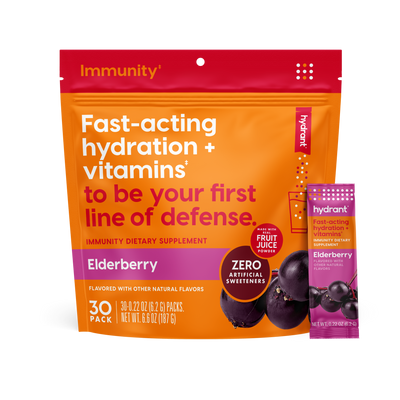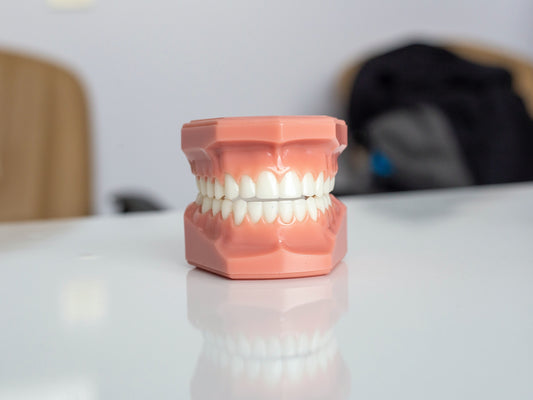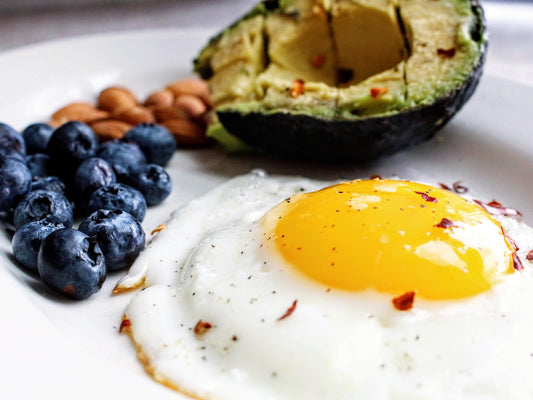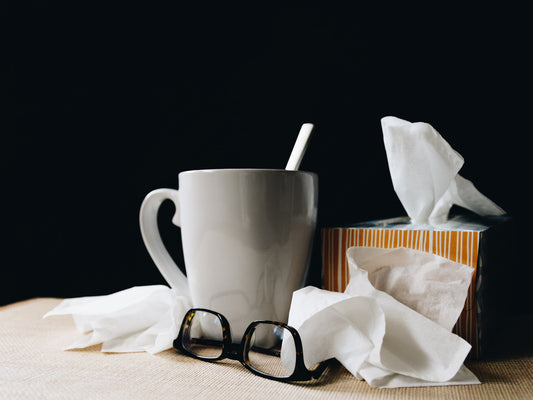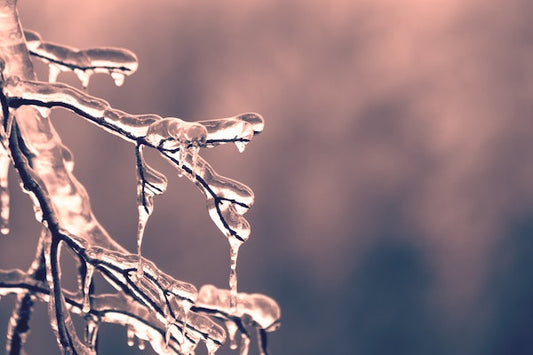Why am I always thirsty? Am I drinking enough water? Am I drinking too much?
Drinking water seems like a simple enough step in our daily self-care routines, but is sometimes hard to keep track of. While some struggle to drink enough water, others over-indulge. Excessive thirst is defined by doctors as drinking more than 3 liters a day [1]. Determining the cause of excessive thirst can be tricky, so we’ve summed up some potential causes of thirst that you may not have considered.
Dry Mouth
Can’t make your thirst go away? You might not be thirsty at all, but rather be suffering from a dry mouth! Your body continually produces saliva to help keep your mouth moist and clean, and to help with swallowing and digesting food. If you don’t have enough saliva, your mouth may feel dry or sticky. Certain medications and treatments can cause dry mouth, and aging might also be a factor. Smokers are more likely to get a dry mouth, and it may also result from nervousness or stress. [8,9]
Salt Intake

Your body fluids, such as your blood and the fluid between your cells, need to maintain a precise balance of water and salts. We call this osmolarity. There are special detectors all through your body that tell your brain the osmolarity of your body fluids. If your blood has too much such salt and not enough water, the receptors will notice the change and tell your brain that you need a drink. Even a slight 2-3% change in the osmolarity of your blood can cause you to feel thirsty. Generally speaking, the more salt you consume, the more salt is absorbed by your gut, the more gets into your blood, the more water you need to consume to balance it out, and the more your body will tell you to drink more, and you’ll feel thirstier and thirstier. [10]
Dehydration

There are several causes of dehydration, but the general rule of thumb is to consume as much water as you lose each day. Don’t compare how much you’re drinking to other people, compare it to how much you’re losing! If you’re very active or in a hot climate or workspace, you’ll lose more water each day than other people, and will therefore need to drink more. If you’re suffering a hangover, or recovering from stomach flu or diarrhea, you’ll also need to drink more water to replace the fluids lost.
Diabetes

Continuous thirst is a core symptom of diabetes, along with increased urination [2]. But why does diabetes make you thirsty?
Diabetes is caused by either a lack of insulin (type 1), or a reduced effect of insulin on your cells (type 2). Insulin enables your cell to take up sugar (glucose) from your blood, which can be used for multiple processes, including the release of energy and the biosynthesis of other molecules essential for basic cell functions. When your cells are less able to take up glucose from your blood, your blood glucose levels get higher and higher [3].
Your kidneys usually work to make sure you don’t lose any essential glucose to your urine, reabsorbing glucose when blood is filtered through. However, when your blood glucose levels get too high, your kidneys get overloaded and can’t rescue all the glucose. The excess glucose in your urine sets up an osmotic gradient, where your urine is more concentrated than your body fluids. In order to balance out the high concentration of glucose in your urine, water is drawn into urine from your body tissues, diluting the glucose. (Check out our article on sugar and dehydration for more on osmosis in your body.) The movement of water into your urine only begets more urine, draining the water from your body and making you thirsty. [4,5]
Thyroid problems
The thyroid gland weighs less than one ounce, and is found on the front side of your neck, in front of your voice box [6]. Although it is one of the lesser known organs, your thyroid is incredibly important for day-to-day body function. Excessive thirst could be a sign that your thyroid is overactive.
The thyroid takes advice from the brain about how much work the cells in your body need to do, and then produces and releases the right hormones to pass this message onto your other cells. However, sometimes the thyroid is overactive, releasing too much hormone, or not active enough, releasing too little hormone [6].
If the thyroid gland is releasing more hormone than needed, it causes all your body processes to speed up. This is called hyperthyroidism, and can be due to a wide variety of underlying conditions. Due to your body working harder, it will need more water to sustain the biological processes, and you might feel more thirsty than usual. You can learn more about your thyroid here and about the symptoms of hyperthyroidism here, and if you’re worried, consult your doctor [6,7]
No matter the exact cause, you can avoid the pitfalls of daily dehydration and mitigate excessive thirst by mixing Hydrant into your next glass of water.
Writer: Ailsa McKinlay
Editor: Elizabeth Trelstad, www.hellobeaker.com












